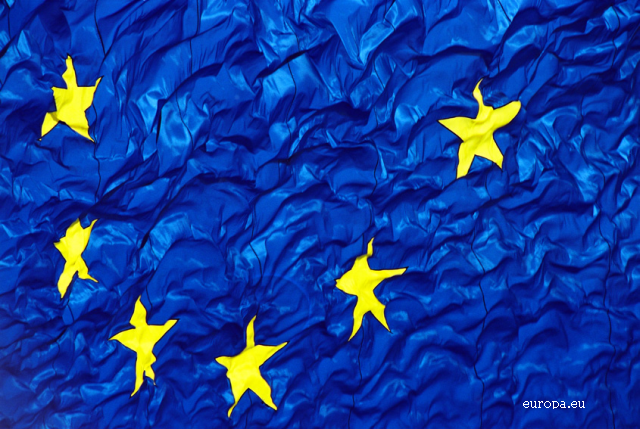Commemorations and Challenges
The European Union is trying to cope with new geopolitical challenges.

Corina Cristea, 16.05.2014, 13:24
For Romanians, May the 9th has a three-fold significance: it is Victory Day, commemorating the end of the war against Nazi Germany, Independence Day, and Europe Day, celebrated alongside the other 27 members of the European Union since Romania joined the Union in 2007. According to the President of Romania Traian Basescu, the main message that the EU should convey is unity, in the current context where the balance between defending national interests and preserving international legitimacy comes under threat. Traian Basescu:
“We need unity and solidarity, in the best interest of the EU, both in order to counter the growing strength of populist and extremist parties, and in order to protect our interests from the no less important foreign threats coming from the East.”
Speaking on Europe Day about the past and future of the European Union, European Commission President Jose Manuel Barroso said that the past decade of European integration had seen on the one hand extraordinary achievements, such as the EU enlargement to include central and east-European countries and Mediterranean states, since 2004, and on the other hand a number of unprecedented crises. A first difficult moment was the impossibility to ratify the new EU treaty, which was overcome only when the Lisbon Treaty came into force in 2009. The financial crisis followed, which was deepened by the combined effects of the sovereign debt crisis, the economic and the social crisis. Speaking about the future of the EU, Jose Manuel Barroso said the principles defined in 1950, at the beginnings of the European Union, are still valid today.
On the other hand, Jose Manuel Barroso pleaded for genuine dialogue on the future on the Union, because, as the EC president put it, we see frictions between the north and the south, between the rich and the poor, between borrowing and lending states, between centre and periphery. The EU official also discussed the new challenges generated by the Ukrainian crisis, described by Barroso as probably the greatest threat to security and peace in Europe since the fall of the Iron Curtain and the Berlin Wall. Russia’s annexation of Crimea and the increasingly alarming situation in eastern Ukraine top the EU’s current foreign policy agenda. The disquieting news coming from the region points to an ever-deeper rift between Moscow and the West. And the sanctions imposed against Russia in retaliation have proved ineffective. Here is the head of the Romanian Foreign Intelligence Service Catalin Harnagea:
“We see increasingly frequent visits to NATO’s eastern line, that is Poland and Romania, by a lot of personalities and officials from organizations which have some control and military strength. There is a lot of activity here, not necessarily of a diplomatic nature, but rather one that reflects the growing interest Washington is showing regarding this threat. Because this is a threat coming from Russia, something that Washington did not expect after 1990, particularly since it was busy with other conflicts, other wars, other interests. Even so it still happened, and when faced with this threat Washington is responding. In this situation and at this point, Romania has a privileged position that must be taken into account, because together with Poland it can represent a line of defence against any conflict or threat coming from the east.”
The Republic of Moldova, seen as a key player in this part of the continent, will sign the EU Association Agreement on June the 27th. The announcement was made in Chisinau by the European Council President Herman Van Rompuy, and the developments in Ukraine appear to have played a part in stepping up this process.






























